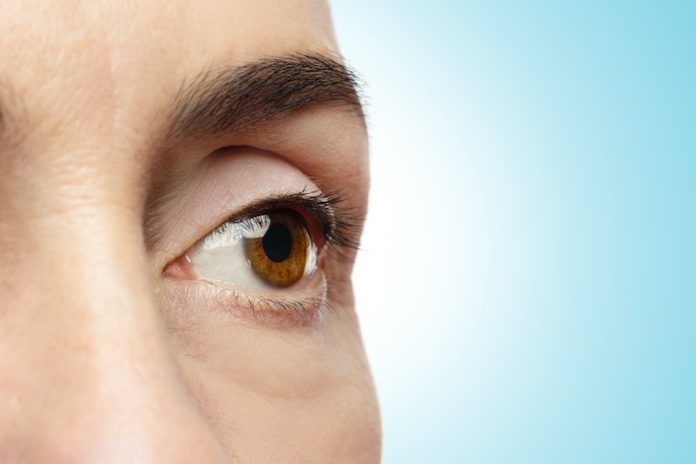
Researchers at the University of California, Irvine, have identified a new class of drugs with the potential to treat age-related macular degeneration (AMD), diabetic retinopathy (DR), and retinitis pigmentosa (RP).
These conditions are among the leading causes of blindness worldwide, affecting approximately 350 million people.
Current treatment options for these chronic and progressive retinal diseases are limited, with most patients having only minimally effective or no treatment options.
Study Findings
In a study published in the Proceedings of the National Academy of Sciences, the researchers introduced a new class of therapeutics called “Stress Resilience-Enhancing Drugs” (SREDs).
The team found that through selective, pharmacological inhibition of cyclic nucleotide phosphodiesterases, their prototypical SREDs slowed or halted the development and progression of retinopathies in several genetic and environmental animal models.
The study used a systems pharmacology platform that uses state-of-the-art disease modeling and characterization to identify novel, mechanism-based therapies that mitigate disease at the root cause.
The researchers found that the SRED therapeutic intervention enhanced resilience to acute and chronic forms of stress in the degenerating retina.
As a result, tissue structure and function were preserved across multiple models of age-related or inherited retinal disease.
Potential for Future Treatments
According to Krzysztof Palczewski, Ph.D., corresponding author of the study, “SREDs represent a promising strategy for patients and clinicians to combat disease in earlier stages.
It is with superior efficacy over the current standard of care, augmenting the arsenal of ophthalmic medications presently available in anti-angiogenics, corticosteroids, and nonsteroidal anti-inflammatory drugs (NSAIDs).”
Lead author Jennings Luu, MD/Ph.D added that “ultimately, it is our expectation that SREDs will someday serve as a standard of care for human aging.
It can effectively provide patients the means to diminish suffering from debilitating ailments for which there currently exist no viable therapeutic options, thereby extending human lifespan and health span irrespective of disease etiology.”
Commercialization of Research
Luu and Palczewski have co-founded a seed-stage startup pharmaceutical company, Hyperion Therapeutics, Inc.
It aims to commercialize the intellectual property associated with their recent discoveries and introduce new therapeutic agents for the treatment or prevention of AMD, DR, RP, and other progressive, incurable blinding diseases.
Hyperion Therapeutics, Inc. was recently awarded first place in the Morganthaler-Pavey Startup Competition hosted by the Veale Institute for Entrepreneurship.
The company has also partnered with UCI Beall Applied Innovation in the Wayfinder Incubator Program.
Through this strategic alliance, Luu and Palczewski are serving as co-investigators on a newly awarded Proof of Product grant, which will support the advancement of their pipeline therapies toward clinical trials and eventual commercialization.
How to prevent AMD
Age-related macular degeneration (AMD) is a common eye disease that can cause vision loss in older adults. While there is no surefire way to prevent AMD, there are some steps you can take to lower your risk:
Eat a healthy diet: Eating a diet rich in fruits, vegetables, whole grains, and fish can help reduce your risk of AMD. These foods are high in antioxidants, vitamins, and minerals that are essential for eye health.
Exercise regularly: Regular exercise can help maintain a healthy weight and lower the risk of conditions like high blood pressure, diabetes, and high cholesterol that can contribute to AMD.
Protect your eyes from the sun: Wear sunglasses that block out 99% to 100% of both UVA and UVB radiation when you are outside.
Don’t smoke: Smoking is a risk factor for AMD, so quitting smoking can lower your risk of developing the disease.
Get regular eye exams: Early detection and treatment of AMD can help prevent vision loss. Schedule regular eye exams with an eye doctor to monitor the health of your eyes.
Manage other health conditions: Conditions like high blood pressure, diabetes, and high cholesterol can contribute to AMD, so it is important to manage these conditions with medication and lifestyle changes.
By taking these steps, you can lower your risk of developing AMD and maintain good eye health as you age.
If you care about eye health, please read studies that diabetes and high blood pressure can predict blinding eye disease, and 7 habits that help prevent vision loss in older people.
For more information about eye health, please see recent studies about common eye diseases and conditions in older people, and results showing drug that benefits older people with blinding eye disease.
The study was published in PNAS.
Copyright © 2023 Knowridge Science Report. All rights reserved.



